
YTI Experts at DREAM in Albany
A team from the Yang-Tan Institute on Employment and Disability (YTI) presented 15 workshops at New York state’s third annual Disability Rights & Employment Awareness Month (DREAM) Symposium in Albany’s Empire State Plaza on Oct. 1–2.
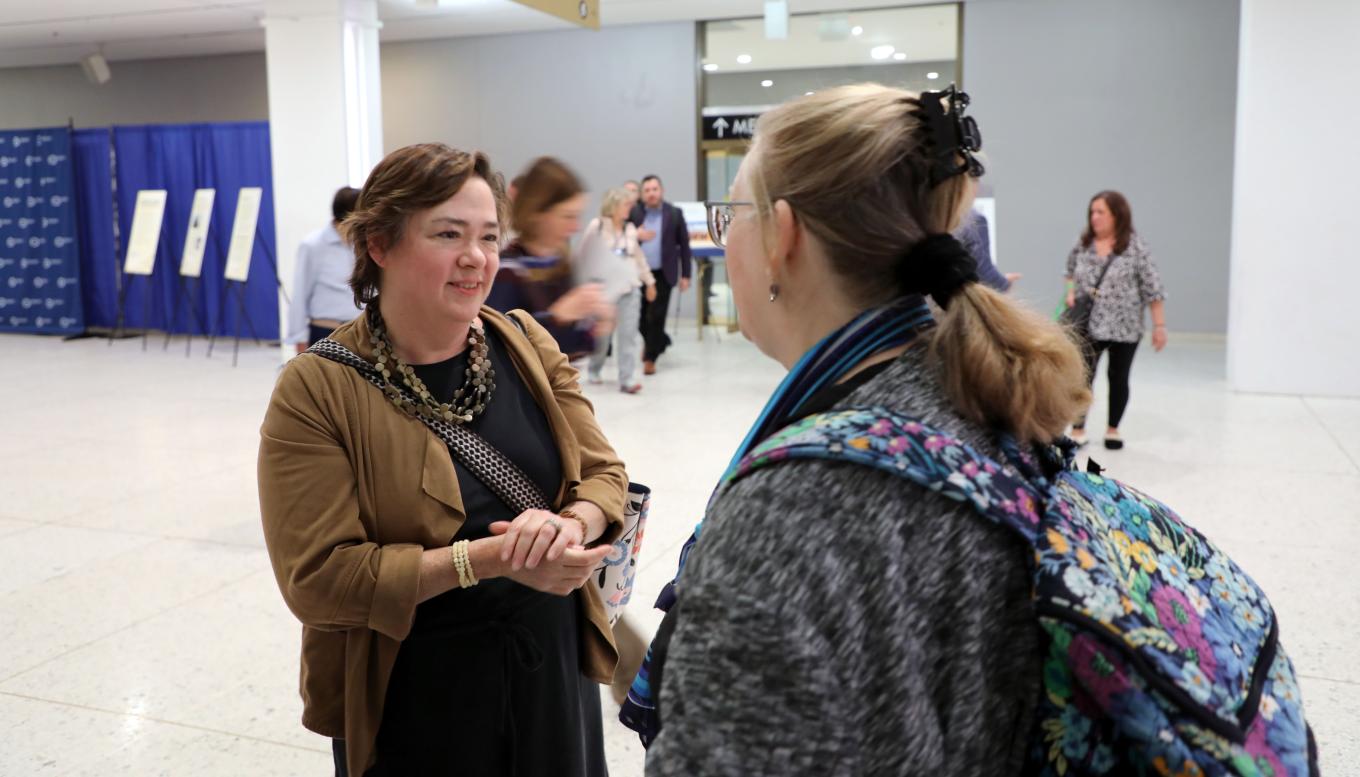
The in-person symposium marked the beginning of Disability Rights & Employment Awareness Month, which takes place every year in October. Organized by New York state’s Chief Disability Officer Kimberly Hill Ridley, the third annual DREAM symposium aimed to acknowledge the rights of people with disabilities, celebrate the value that disabled New Yorkers bring to the workplace and assist with matching qualified job candidates with employers. The event attracted hundreds of people from New York and surrounding states, including people with disabilities, professionals in the disability field, and policymakers.
“We assisted New York state with putting on a big event that creates opportunities, brings people together and shares the latest recommendations and advice. We look forward to supporting the state’s goal of expanding DREAM from its regional focus to a national audience.”
—Ellice Switzer
The DREAM symposium coincided with New York Gov. Kathy Hochul signing the New York state Executive Order 40, “Committing New York to Be an Employment First State to Increase Competitive Integrated Employment for New Yorkers With Disabilities.” (In very simplified terms, competitive integrated employment generally means work with earnings of at least minimum wage and with co-workers who are disabled and non-disabled.)
To plan DREAM, Hill Ridley and her staff worked with Ellice Switzer, extension associate and director of the New York state fund allocation at the Yang-Tan Institute, and Andy Sink, director of the New York Employment Services System.
“The goal of Employment First is to create pathways to regular work. People with disabilities have historically been marginalized culturally and certainly in the workplace. When we’re talking about competitive integrated employment, it’s normalizing employment for a population that has been segregated.”
—Andy Sink
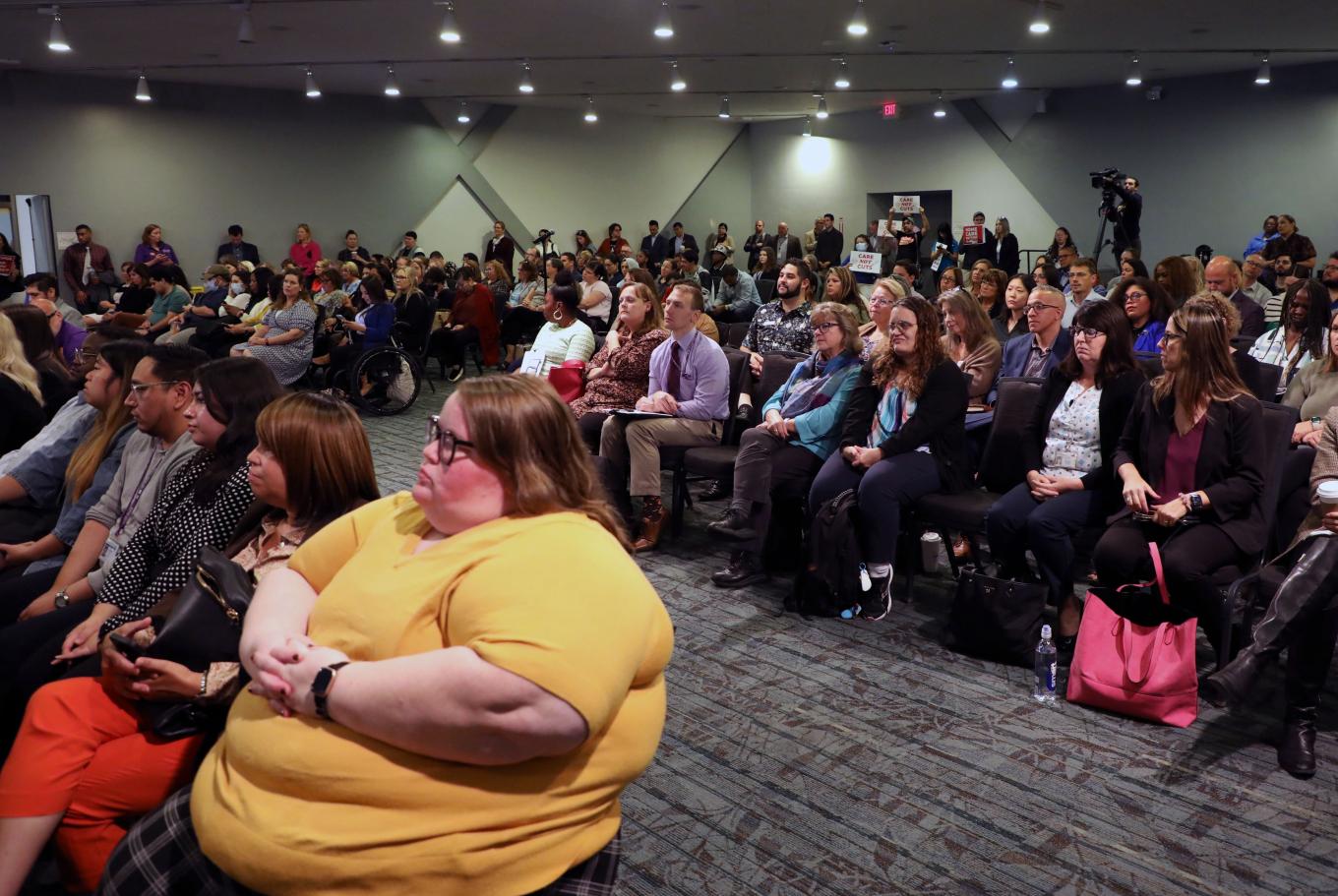
Workshop Highlights
The workshops showcased the wide range of the institute’s expertise and related to the Employment First commitment in Executive Order 40. Employment First is a national movement that asserts the right of all people with disabilities to employment in the general community with coworkers who are not disabled, and with earnings of at least minimum or prevailing wage.
Work-Based Learning for Youth
One workshop explored how youth with disabilities can benefit from high-quality, work-based learning experiences. These research-backed experiences are part of the New York State Framework for Work-Based Learning (WBL), which supports students to become confident workers and culturally competent citizens. The presentation – given by Project Director of the Technical Assistance Partnership for Transition, Jessica Ellott, and Extension Associate Donna Spotton – explored several dimensions of work-based learning, including key elements of quality work-based learning experiences, important considerations and examples. They also discussed how equality, equity and access create opportunity. (The Technical Assistance Partnership for Transition is a New York state-funded project related to assisting students with disabilities in their transition to postsecondary education and career options.)
Finding Data to Support Decisions and Track Progress
Another session, given by Senior Research Specialist Bill Erickson, explained how the institute’s DisabilityStatistics.org website provides statistics about disability that can inform efforts to shape policy or request funding for disability-related programs and services. The website is currently maintained by the Northeast ADA Center, which is hosted at the institute. Erickson noted the difference in employment rate in New York state between people with disabilities (40%) and people without disabilities (80%) for people ages 21–64, and discussed how further research using disability statistics could improve understanding of disability employment barriers in New York. (Percentages are estimates from DisabilityStatistics.org.)
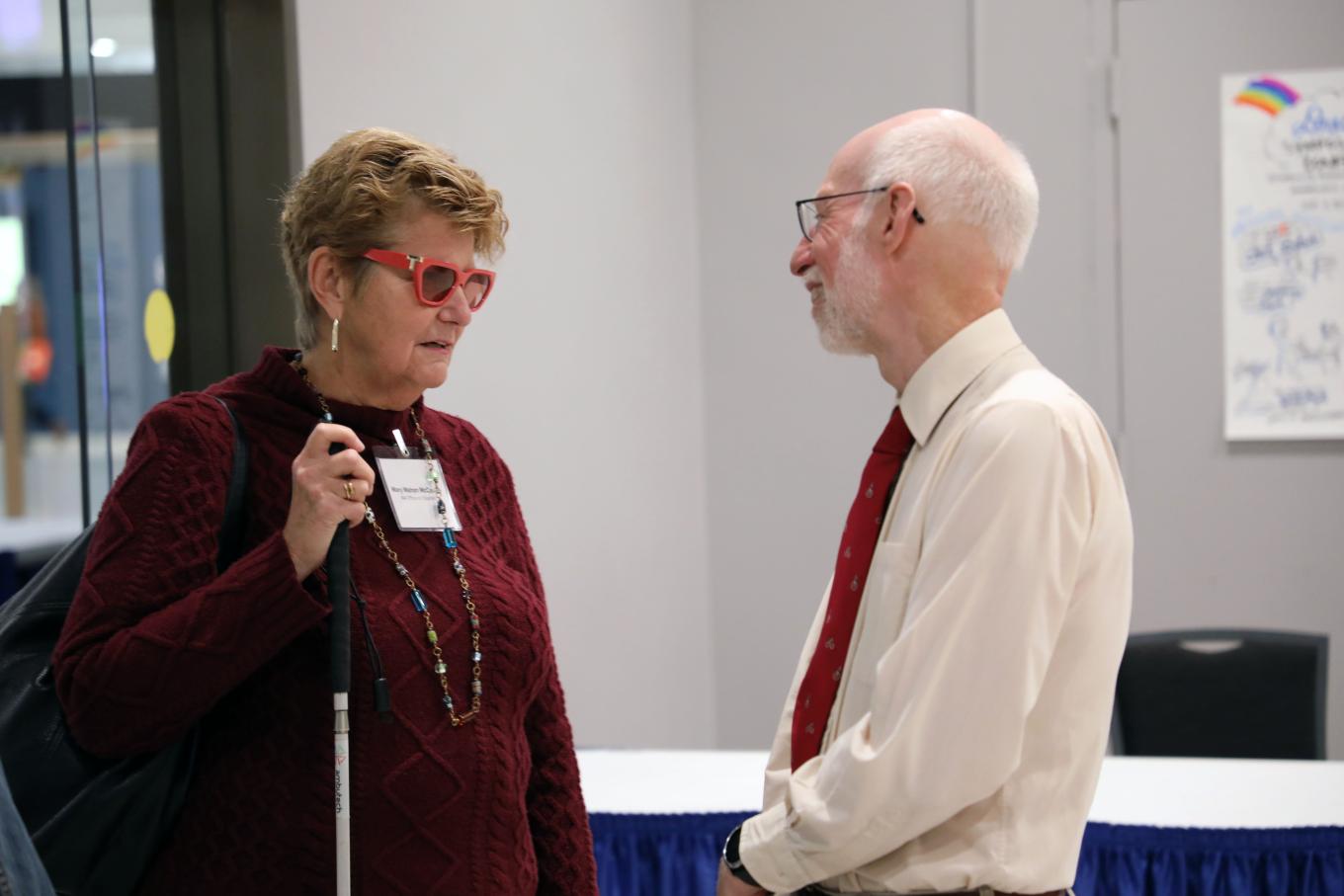
Model Employer Strategies
Another presentation, “Lessons from Federal Model Employer Efforts,” looked at how New York state can meet its goal of becoming a model employer, which includes efforts to increase recruitment, hiring, retention and career advancement of people with disabilities in the state workforce. Sarah von Schrader, director of research at the Yang-Tan Institute, shared some results from her multi-year evaluation of the effectiveness of model employer practices in the federal government and described how those findings can be applied to model employer strategies in New York.
Improving Policies and Procedures around Justice-Involved Youth with Disabilities
Another workshop looked at challenges – and solutions – related to employment for justice-involved youth with disabilities. Senior research associate Matthew Saleh shared recommendations for changes New York state could make to improve coordination between agencies so youth can more easily receive appropriate services and gain employment. More information is in a recently released policy brief, written by Saleh and others at the institute.
“Events like DREAM, where there is time for informal conversations, are so important for relationship building and networking.”
—Kaitlyn Jackson
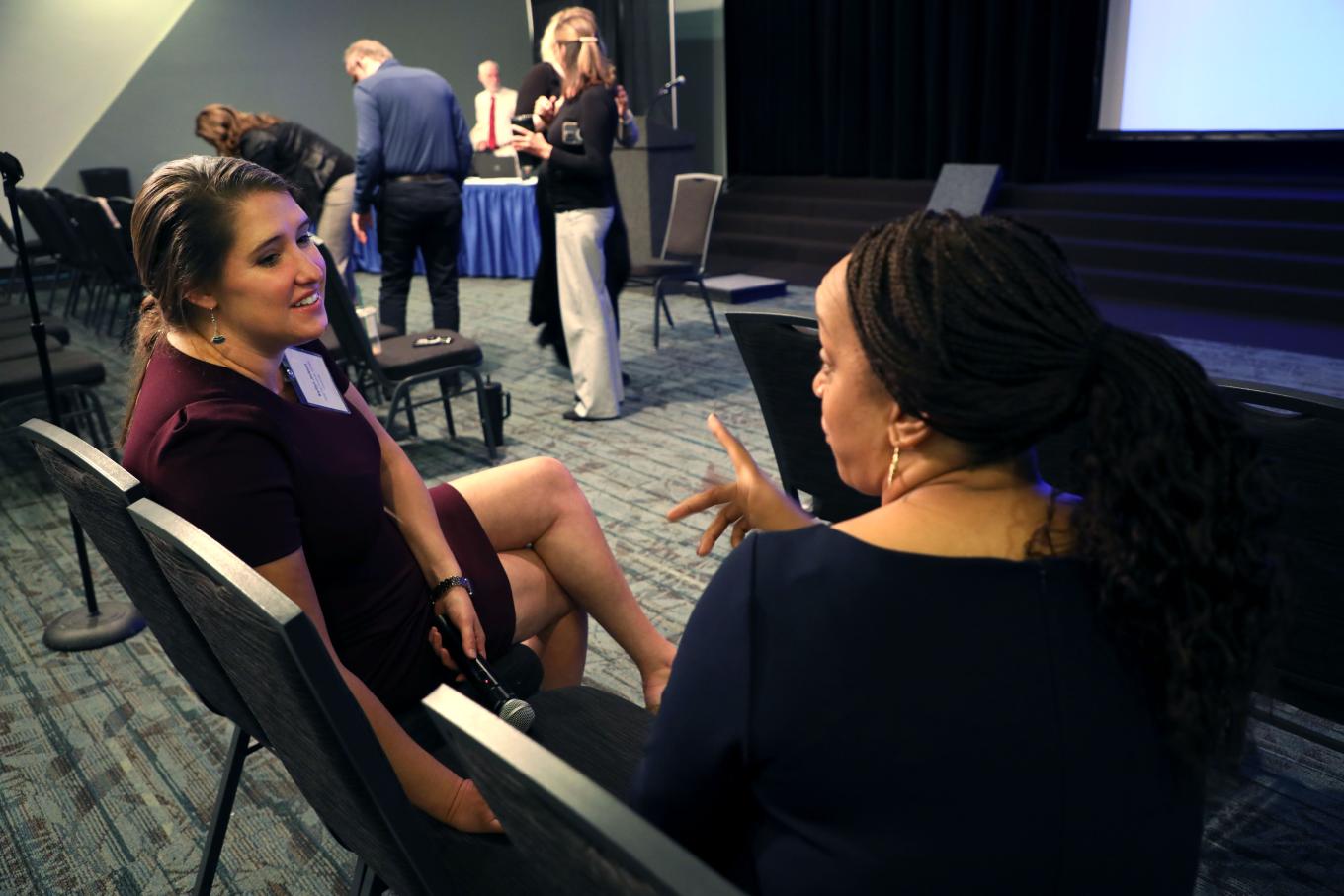
Future Dreams
The New Your State Chief Disability Officer and her staff have already begun planning for the DREAM 2025 event, with support from the institute. They aim to expand the event while furthering the state’s Employment First policies.
“My goal with anything to do with this event is being able to show as the years go on… an increased employment rate for people with disabilities.”
—Kimberly Hill Ridley
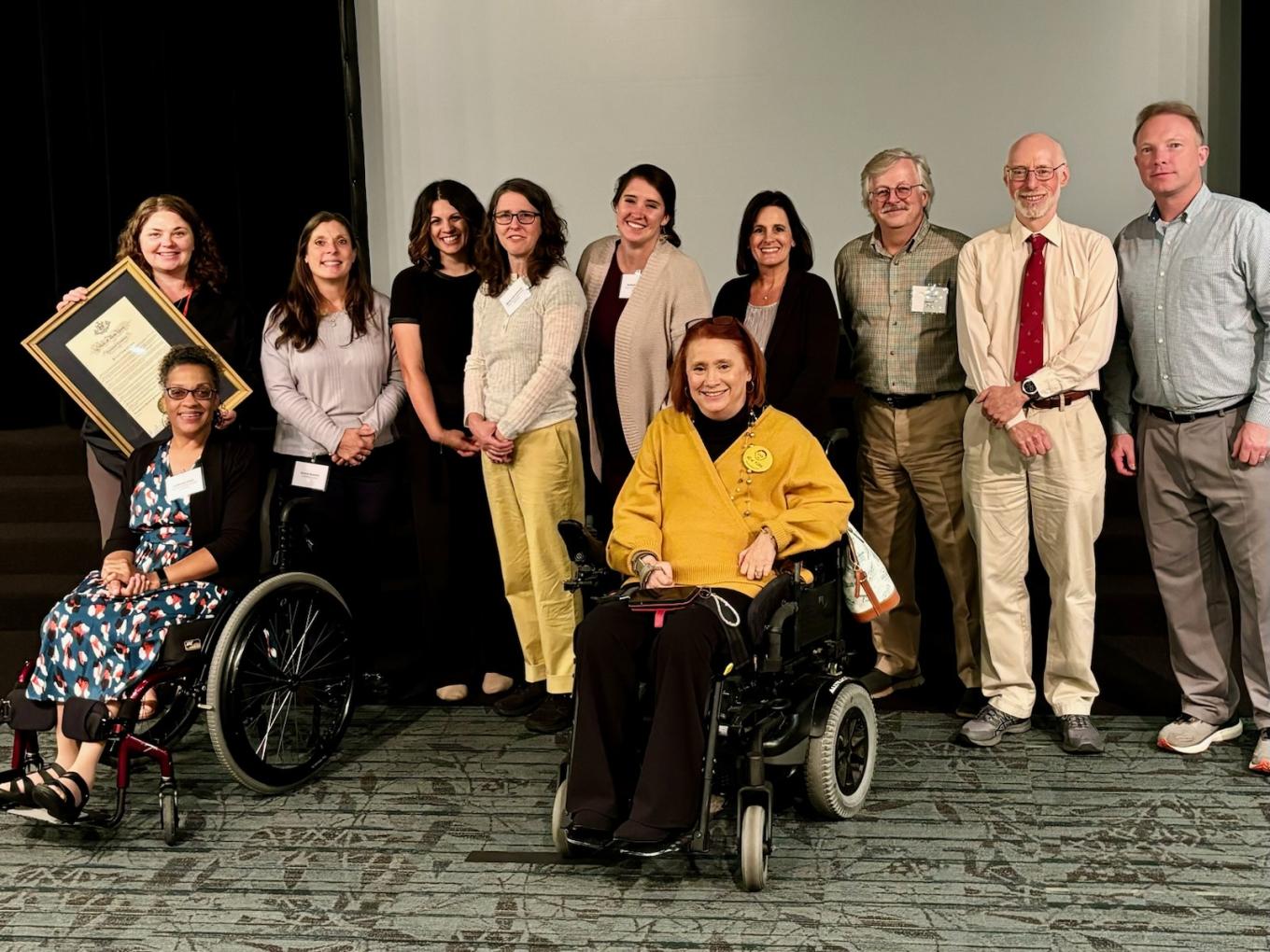
About the Yang-Tan Institute
Providing practical information to policymakers, educators, employment specialists and others who assist people with disabilities is a core focus for the Yang-Tan Institute on Employment and Disability, which is part of Cornell’s ILR School. The institute’s mission is to advance knowledge, policies and practices that enhance equal opportunities for all people with disabilities. Its research, training and technical resources expand knowledge about disability inclusion, leading to positive change.
The institute leads many grant-funded projects, including Improving VR Outcomes for Out-of-School Youth Involved in the Justice and/or Foster Care Systems and New York state Subminimum Wage to Competitive Integrated Employment (SWTCIE). The institute also receives funding via a New York state legislative appropriation to assist with a variety of disability-related initiatives.

